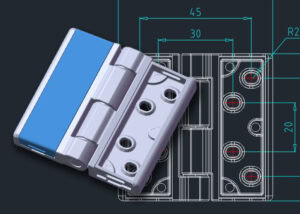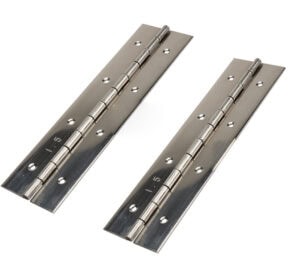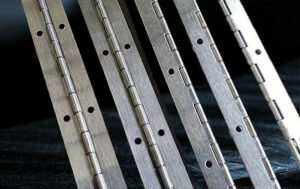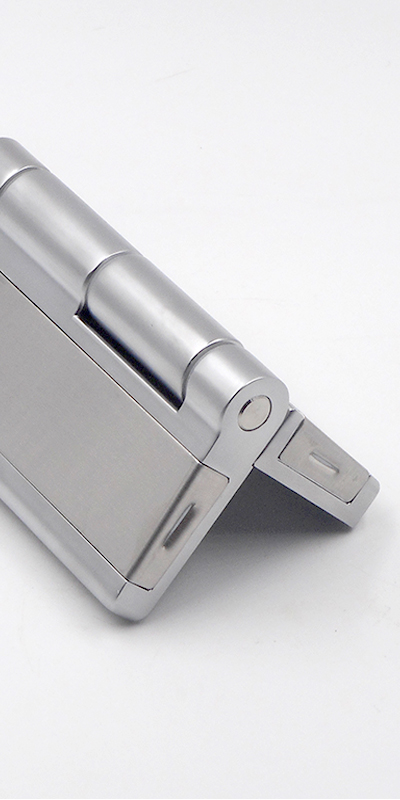Industrial butt hinges are a type of hardware you must use for industrial equipment doors. It’s tiny, but it’s important. Its main job is to connect the door to the door frame and carry the weight of the door.
Special industrial hinges will vary depending on your specific equipment requirements, and in many cases, they will be custom-made. However, both regular and special industrial hinges will eventually have the problem of rusty hinges. This is something we need to talk about when it comes to using industrial hinges.
We will discuss the following 10 things about rusty industrial hinges.
What is an industrial butt hinge?
First of all, we need to know what the heck an industrial hinge is. It is a category of hinges used in the world of industrial equipment. They are used to connect a door to its frame and also carry the load of the door.
There are many kinds of industrial hinges. You can classify them according to the material, application, and structure. These are butt hinges, concealed hinges, heavy-duty hinges, removable hinges, and cold room hinges.
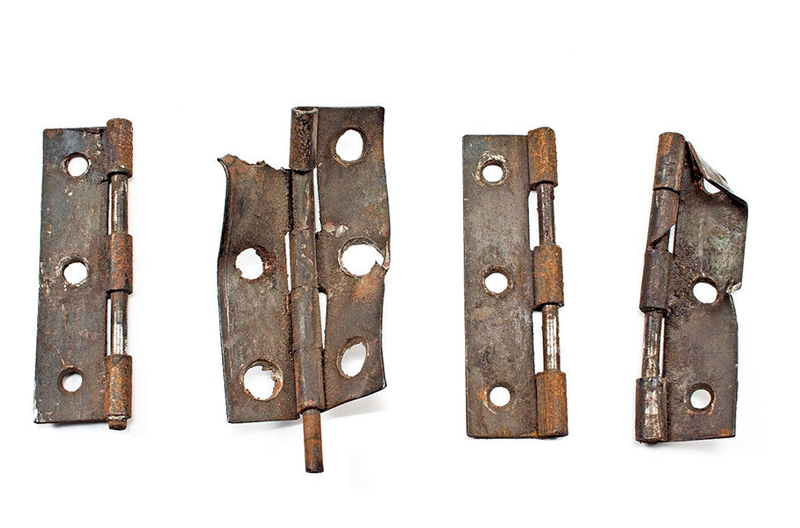
What is the role of industrial hinges?
The role of industrial hinges is mainly as follows.
1. Connect the equipment door to the door frame. This is the most important role of industrial hinges. Every piece of equipment that needs to have a door installed on it must have hinges.
2. Carry the weight of the door. The weight of the door dictates the load-bearing capacity of the hinge. The heavier the door, the stronger hinge you need to install. Usually, you need to install a minimum of two hinges on each door.
3. Raise and lower the door. Some special characteristics of the hinges will cause the door to change in height as it opens and closes. For example, when the door opens, it will raise up with the angle of the door opening, and it will lower down with the angle of the door closing.
4. Additional special features. Depending on the requirements of the equipment, you can customize the hinge with different functions, but the basic function is the same. Some hinges need to be able to be removed, and these are called removable hinges. Some hinges need to be installed in a way that you can’t see them, and these are called concealed hinges.
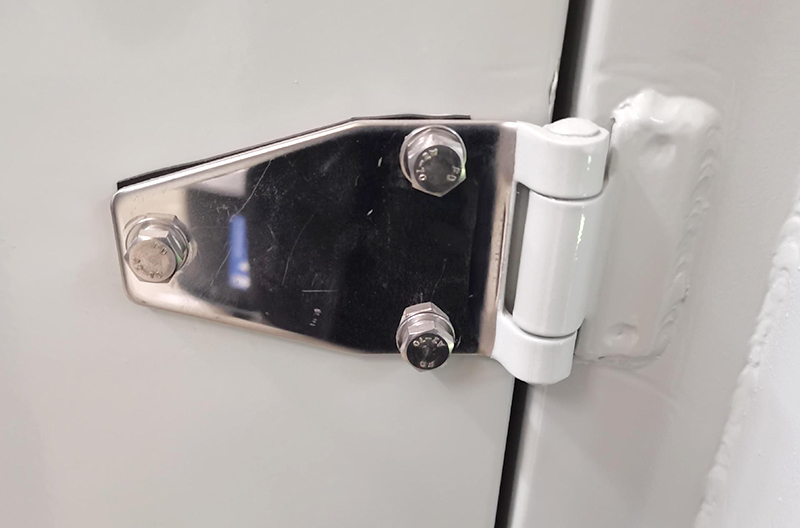
Why do industrial hinges rust?
The main reasons for rusting hinges are as follows.
- The material of the hinge. This is one of the most important factors. Different materials will determine whether the hinge rusts or how much it rusts. If the hinge material is nylon, you do not have a rust problem. If the hinge material is iron, you’re likely to have a rust problem. If the hinge material is stainless steel 304, you basically will not have a rust problem.
- The environment in which the hinge is used. Even though different materials will play a deciding factor in whether the hinge will rust or not, different use environments will greatly affect the situation of whether the hinge will rust or not. Iron will rust more than stainless steel, but if you use iron in a dry environment inside, you can use it just like stainless steel and it won’t rust. Stainless steel, if used outside in a very harsh environment, will rust, even in sewage.
- Long-term lack of maintenance. In the case of normal use, if it’s not maintained for a long time, it can also rust. Some equipment in the process of use will have oil and dust generated, and these things will cover the surface of the hinge. If you don’t clean it for a long time, then it’s possible to have corrosion on the hinge.
- Damage to the surface of the hinge. The surface of the iron hinge will generally do a layer of surface treatment to prevent rust. If this protective layer is damaged and not repaired in time, it will also rust over time and eventually rust the entire hinge.
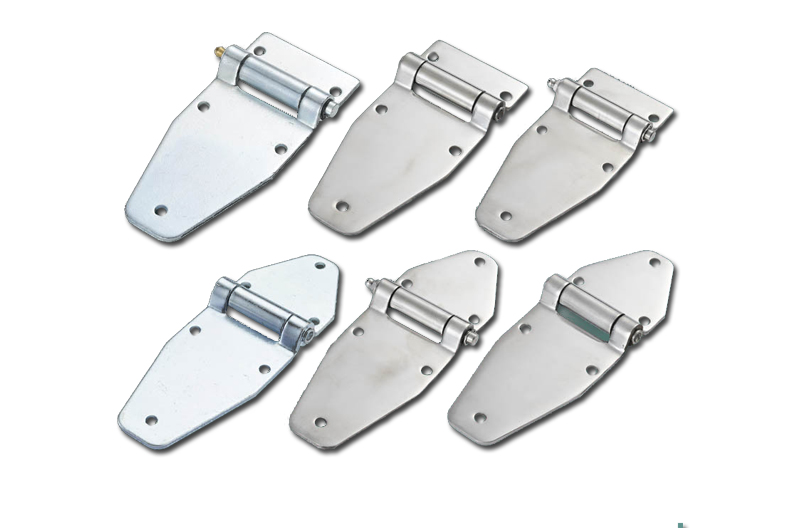
What environments tend to cause hinges to rust?
The following environments are likely to cause rusting of hinges.
Moist environment. In a moist environment, the surface of the hinge is readily affected by the moist air. The moist air combines various impurities and gases in the air together, which may form some kind of chemical solution.
When these chemical solutions stick to the surface of the hinge, they will chemically react with the protective layer on the surface of the hinge, causing rust to form.
Oil environment. The hinge is in a state of being soaked in oil for a long time in an oil environment. There are many kinds of chemicals in the oil, which will cause the hinge to rust.
High-salt environment. It is easy to rust in a high-salt environment. Even if the stainless steel material is in a high-salt environment for a long time, it will also rust. The products we produce need to do a salt spray test, which is to test them in this high-salt, high-humidity environment.
Strong acid environment. The corrosion of iron is more serious in this environment. The speed at which the hinges corrode is almost visible to the naked eye.
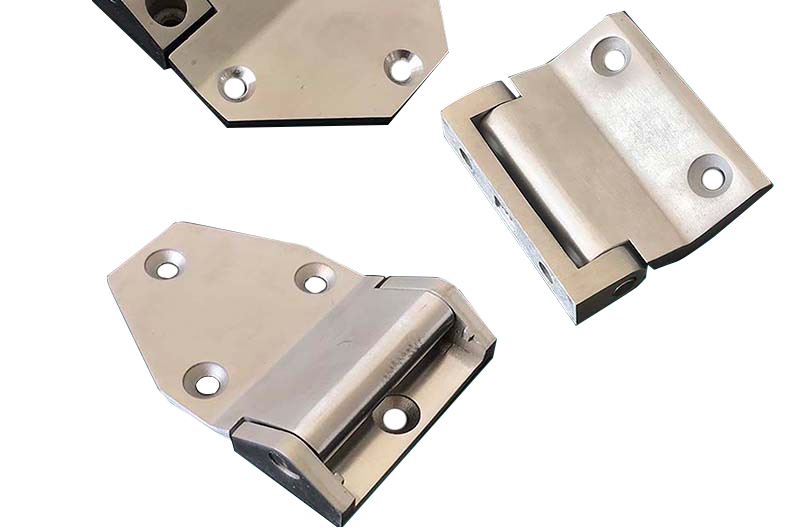
What materials make the hinges rust?
We know that almost all metal products need surface treatment, and industrial hinges are no exception. Surface treatment is a very important process. It makes the surface of the product look better and protects the product from rusting or corrosion very quickly when you use it.
Different materials will determine how easy it is to rust. If you don’t treat iron, you can see rust in a few hours in a moist environment. So iron is a material that is relatively easy to rust.
There are many kinds of stainless steel materials, such as 201 stainless steel, 304 stainless steel, and 316 stainless steel, and many models. These three models of stainless steel are the most commonly used. Among them, 201 stainless steel is easier to rust than 304 stainless steel, and 304 stainless steel is easier to rust than 316 stainless steel. But generally speaking, stainless steel is easier to rust than iron materials.
Note that this rust is relative. In actual use, there will be a variety of factors that cause rust.
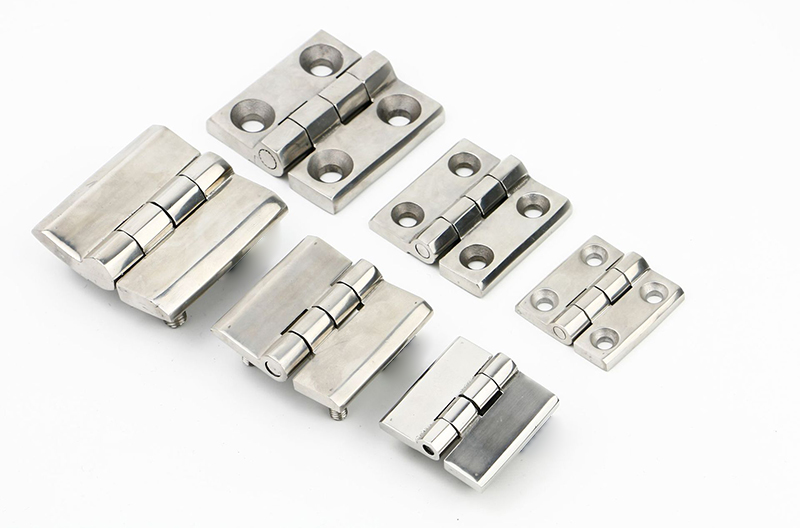
How to avoid the hinges rusting?
Now that we know when it’s easy for the hinges to rust, we have to know how to avoid this situation.
Avoid being in a moist environment. Try not to put your equipment in a moist environment for a long time. It’s not only not good for the hinge, but also not good for your equipment. Plus, there are circuits inside your equipment.
Avoid being in an oil environment. Try not to put your equipment in an oil environment for a long time. If you can’t avoid this situation, then you need to often maintain your equipment and your industrial hinges and wipe the oil off the surface.
Avoid being in a high-salt environment. This environment is worse than the last two environments. Especially when the surface of the hinge is damaged, it will rust in a very short time.
Avoid being in a strong acid environment. This environment is worse than the last three. It should be absolutely not allowed.
In most cases, the products are used in a relatively normal environment. Now the surface technology is very mature, and the products can be used in a normal environment for a long time without rusting. Especially now more and more customers are using stainless steel to order their industrial hinges.
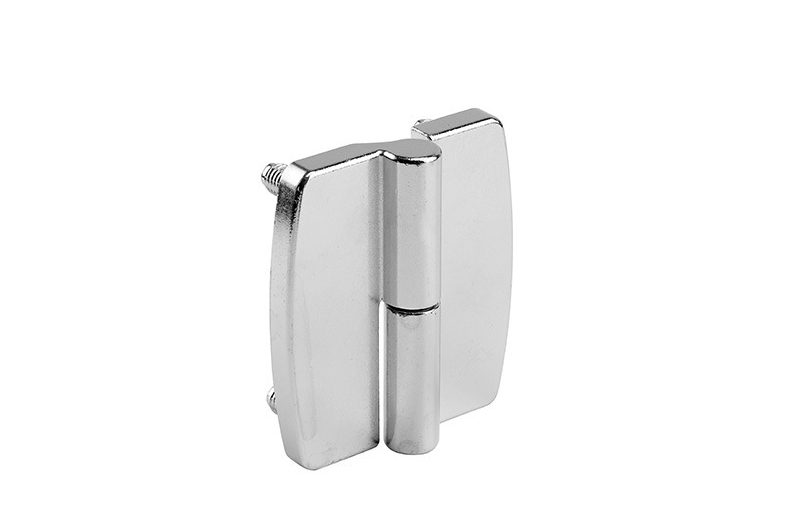
What should I do if my hinges are rusty?
If the hinges are seriously rusted, you need to change them out to avoid safety problems. If the rusting is not so serious, you can use anti-rust spray not to clean it. The surface rusting of the hinges is mainly because the protective layer on the surface is destroyed, and it’s easy to rust after a long time.
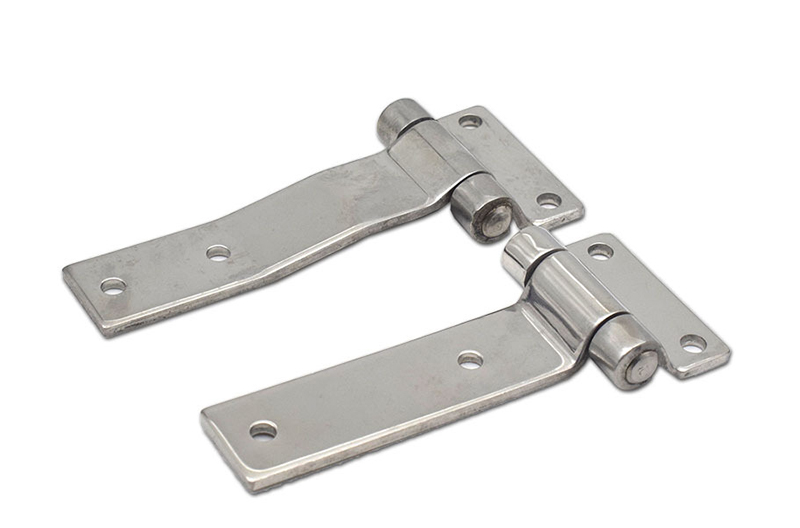
How to maintain the hinges?
In order to keep the hinge in good condition for a long time, you need to maintain it regularly. It’s like a human joint. If it’s working all the time without rest, it may cause fatigue or rust.
To what extent do the hinges rust to the point that you can’t use them?
If your hinges are rusting really bad, we recommend that you change them out. Especially if you find that the hinge shaft is also corroded really bad, you need to change out the hinge right away.
We know that the hinge shaft is the only bridge that connects the two hinge blocks. If the hinge shaft breaks, your whole door will fall down and it will cause a serious accident.
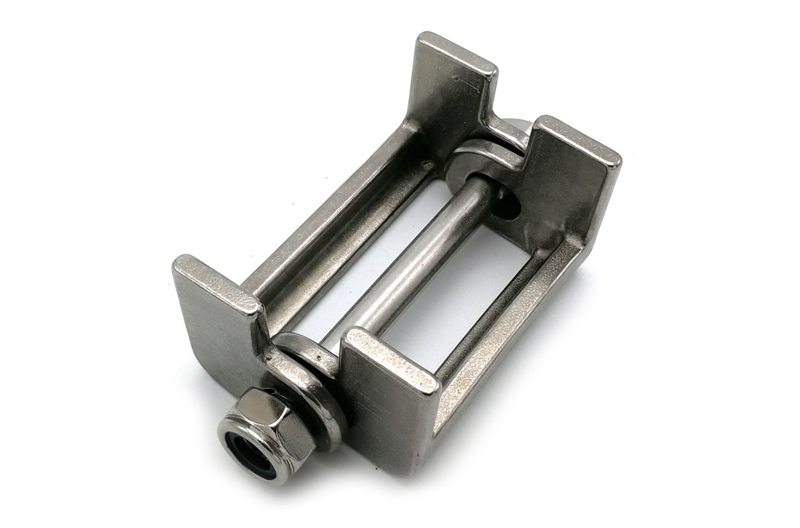
Is corrosion the same as rusting?
Generally speaking, rust is the reaction of materials with water vapor and oxygen in the air, which results in surface oxidation. The reaction of rusting is generally slow. Corrosion refers to the phenomenon of rapid surface corrosion that is caused by the infiltration of corrosive media such as acids and alkalis. The damaged surface is generally more serious.
You may be interested:

